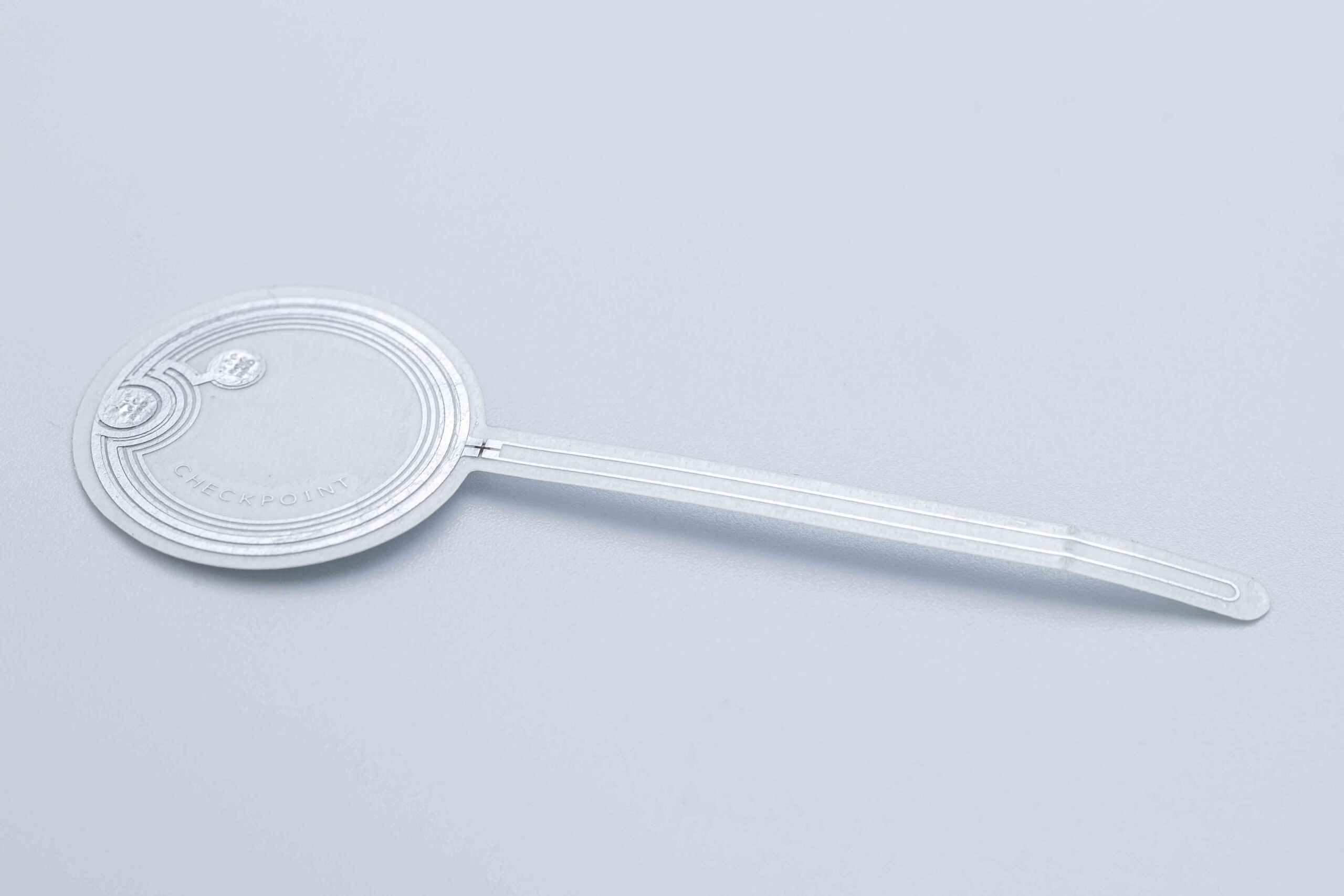The beverage sector, especially alcoholic ones, is steadily expanding. Worth $2,313.2 billion in 2023, it is projected to reach $5,716.2 billion by 2032, with a compound annual growth rate (CAGR) of 10.74%. However, rising food and energy costs are affecting consumer behavior, causing companies to accelerate the search for more efficient management methods. In this context, radio frequency identification (RFID) technology is revolutionizing the beverage industry by improving product traceability and quality, bringing significant benefits for the control and protection of beverages throughout their life cycle.
Below, we look at how RFID positively impacts the beverage sector, how it helps overcome challenges, and what its key benefits are.
How RFID technology improves the beverage industry: From tracking to tampering protection
One of the biggest challenges in the beverage industry is ensuring product authenticity and maintaining transparency over distribution channels. RFID technology plays a crucial role in solving this problem by providing detailed supply chain control and real-time traceability. By embedding RFID tags on each bottle, brands can ensure that products reach their destination and meet the required quality standards. This makes it easier to track the product throughout its journey, ensuring that it is not diverted into unauthorized channels or sold on the gray market.
With RFID, brands can also identify each bottle, which lowers the possibility of fake goods getting onto the market and boosts consumer trust in the company. Real-time tracking enables companies to detect potential problems early in the distribution process, protecting product and brand integrity.
In addition, RFID technology also offers a solution to the problem of product tampering and refilling, especially in the case of high-quality beverages. A major concern for many companies is the risk of bottles being refilled with substandard liquids or manipulated in ways that might negatively impact brand reputation. RFID, combined with tamper-evident solutions, helps to avoid these problems.
For example, Eyewall's tamper-evident solutions provide an additional layer of protection. These RFID tags make it easy to identify any attempt to tamper with a bottle, whether it is refilling, opening, or replacing the contents. These measures help brands protect their products from fraud and maintain consumer confidence.
Key benefits of RFID in beverage management: Ensuring quality, provenance and market transparency
RFID implementation in the beverage industry brings key benefits that strengthen product quality and ensure traceability and authenticity throughout the supply chain. Some of the benefits highlighted include:
- Efficiency: RFID tags record the path of each item throughout its life cycle, allowing companies to ensure that products maintain quality. In addition, inventory monitoring enables faster and more effective product rotation.
- Provenance and regulatory compliance: With RFID, it is possible to know every point each bottle has traveled to its origin, which is vital for regulatory compliance and consumer confidence. This traceability allows the brand or AO to verify the origin of each bottle. Throughout the production and supply chain, it guarantees that the product satisfies quality requirements, although it does not imply knowing every step of the way.
- Speed: RFID technology empowers companies to quickly respond to market fluctuations by providing detailed inventory visibility. This enables businesses to efficiently adjust stock levels and ensure product availability during high-demand periods, such as Christmas or New Year’s Eve when consumption spikes.
Among the other benefits, we highlight the power of this technology to respond more quickly to market fluctuations, adjust your inventory, and ensure the availability of products efficiently at key times such as Christmas or New Year's Eve, when consumption rises.
Tackling common challenges: Preventing bottle refilling with RFID and Eyewall tamper-evident solutions
One of the most important challenges in the beverage industry is avoiding unauthorized practices, such as bottle refilling, which affect brand reputation and consumer perception of quality. In this respect, RFID tags such as Eyewall, which can include tamper-evident features, are an effective barrier against fraud and ensure product integrity at all times.
Eyewall tamper tag is designed to adhere securely to each bottle so that any tampering or refilling attempt leaves visible evidence. This protection is particularly valuable in the premium beverage segment, where authenticity is key to consumer experience and perception of quality. Checkpoint Systems source tagging solutions also offer this advantage, ensuring that each bottle arrives at the point of sale with a tamper-evident seal that guarantees its authenticity and freshness.

Eyewall: RFID label
In addition to protecting the brand and product, these origin labels applied during the manufacturing process help reduce production and logistics costs by minimizing the time products spend in the warehouse before being displayed in stores. This efficiency translates into reduced waste and increased profitability, helping beverage companies maintain optimal inventory control without compromising product integrity.
In conclusion, the implementation of RFID technology in the beverage industry not only improves traceability and quality control, but also offers significant benefits in brand protection, authenticity control, and transparency in the origin of each product. RFID enables companies to optimize their monitoring processes, reduce losses due to fraudulent handling, and ensure that products are available in optimal condition for the end consumer.
